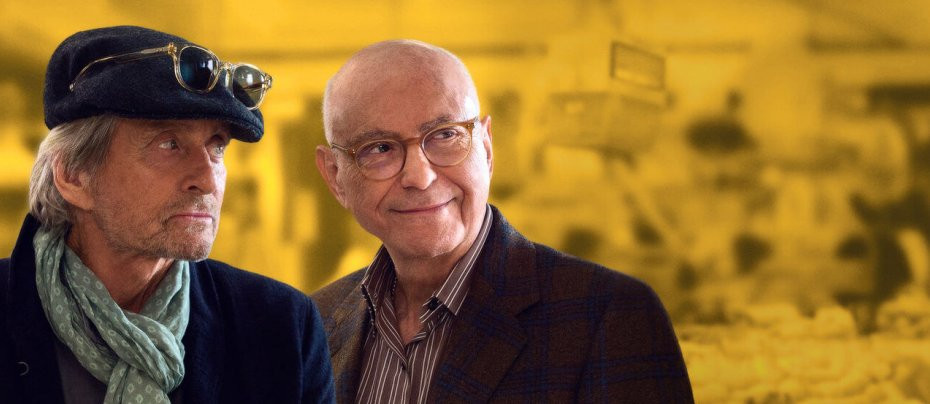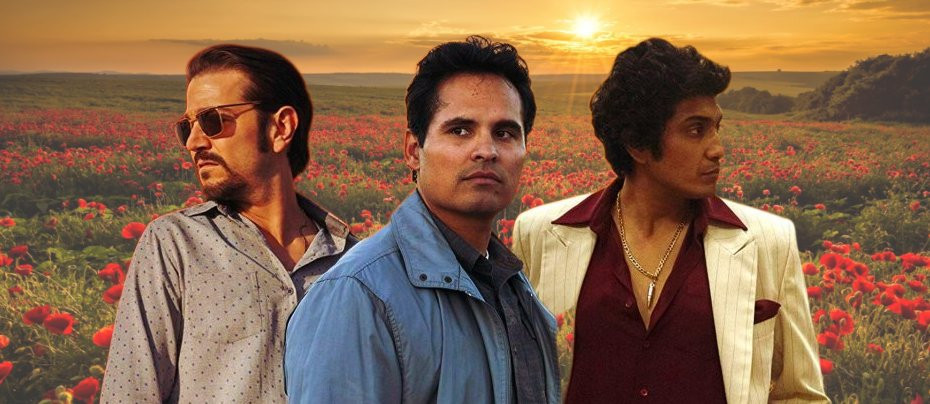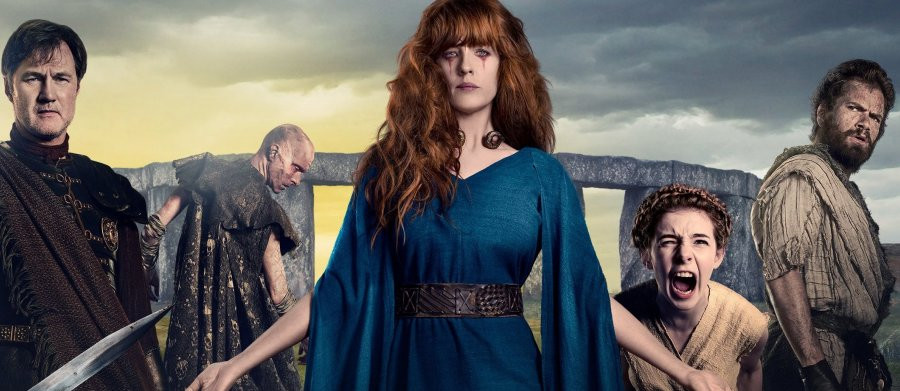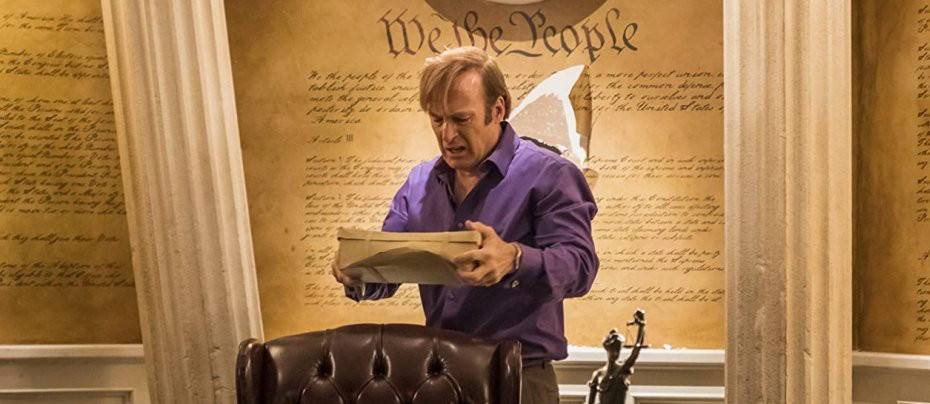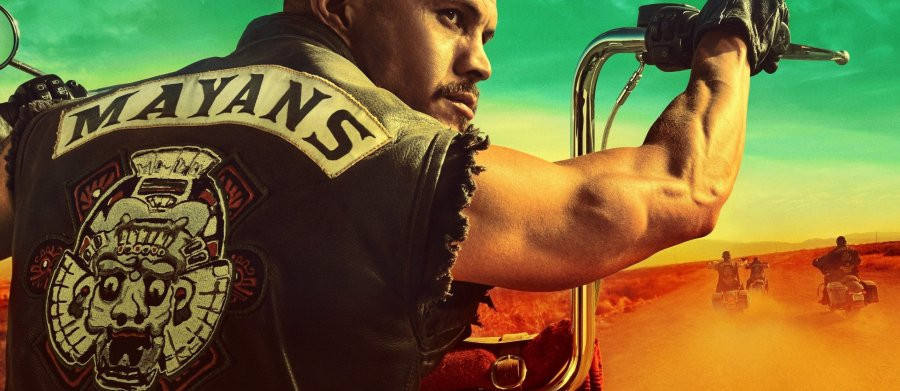
Mayans M.C.
2018 - United StatesThis is a spoiler light overview of the first season of 'Mayans MC.' It may be an appropriate analogy to say that 'Mayans MC' is the equivalent of methadone for those who miss the dangerous, squalid, and horribly addictive biker drama 'Sons of Anarchy.'
Somewhere between sequel and "spin off," it is the continuing story of the eponymous Mayans Motorcycle Club, the exclusively Latino equivalent of the Sons who were their old enemies, and later their allies, in the original. Continuity is maintained through the presence of Marcus Alvarez (Emilio Rivera), the long-serving President of the Mayans in 'Sons of Anarchy.' Several other familiar faces make guest appearances, including Tommy Flanagan as Chibs, David Labrava as "Happy" Lowman, Michael Ornstein as Chucky, Ray McKinnon as Assistant US Attorney Potter, and Robert Patrick as Les Packer, President of the San Bernadino Chapter of the Sons. There are also frequent references to the Sons, and their fiendishly complicated business dealings, in the dialogue and plotting.
That said, the main storylines of 'Mayans MC' are freestanding, and the world of which the Sons are just another part serves mainly as background to a completely different set of concerns. One does not have to have seen every episode of 'Sons of Anarchy' to appreciate 'Mayans MC' - but it might help if one has.
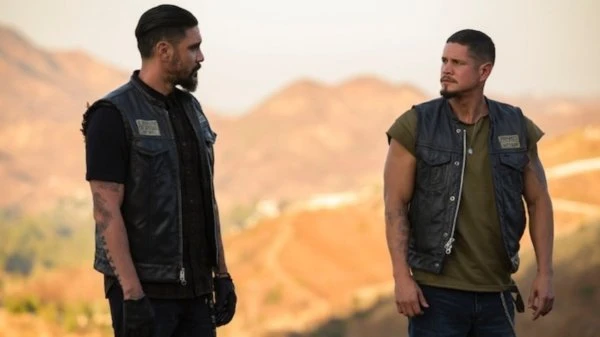
If the main theme of 'Sons of Anarchy' was about relationships with parents, 'Mayans MC' is at heart the tale of two brothers. The younger, Ezekiel Reyes (JD Pardo), known as EZ, is a handsome, well-read intellectual with what looked like a glittering career ahead of him. His older brother, Angel (Clayton Cardenas), is a ne'er-do-well who drifted into crime and found a natural home in the Mayans, an "outlaw" biker gang. Their differing destinies seemed set - until their mother was murdered. An ill considered quest for vengeance landed EZ in prison. From there, his golden dreams in ruins, and following a series of plot devices and decisions that really do not stand close examination, he joins his brother in the Santo Padre Chapter of the Mayans - but with a secret agenda of his own.
Whatever his initial motivation might have been, EZ finds himself drawn into the biker life and begins to bond with his new "brothers," including his actual brother, in the Santo Padre Chapter. To his own surprise, his loyalties become conflicted.
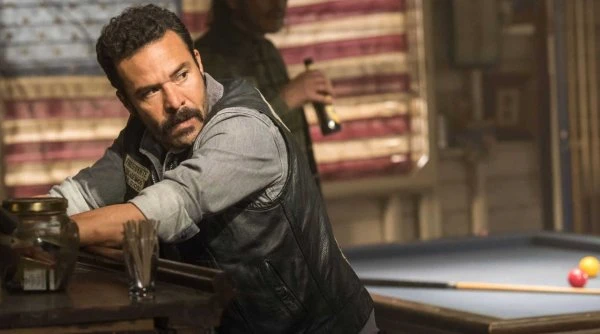
The President of the Chapter is Obispo "Bishop" Losa, who was assigned to the fictional Santo Padre by his cousin, Marcus Alvarez, because its position near the US-Mexican Border makes it very important to the Mayans' overall business. Michael Irby gives a fine study in command as Bishop, but with a subtle subtext: although he feels entitled to respect and promotion because of his work for Alvarez in Santo Padre, and looks the part of a leader, he is sometimes unsure of himself and allows himself to be led by others or by events.

It takes time for the individual characters of the other Chapter members to emerge. Vice President Che "Taza" Romero seems an ideal second in command, loyal and uncomplicated. Appearances are deceptive. The hulking Hank "El Tranq" Loza is clearly the right man to be the Chapter's enforcer - a role given the high sounding title of "Sergeant-at-Arms" in the Sons but the more literal title of "Pacificador," meaning peace maker, in the Mayans. Johnny "El Coco" Cruz is a former US Marine sniper, a useful skill to have given the nature of the Mayans' business.

The Santo Padre Chapter has a close, but not entirely trusting, working relationship with the Galindo Cartel, a major drug smuggling operation. Miguel Galindo (Danny Pino) has recently assumed control of the Cartel on the death of his father. Urbane, University-educated, married to a WASP American, culturally more American than Mexican, and apparently more interested in his family's legitimate business cover than in the real source of its income, he is under pressure to show he has the necessary strength to run a notoriously ruthless criminal organisation.
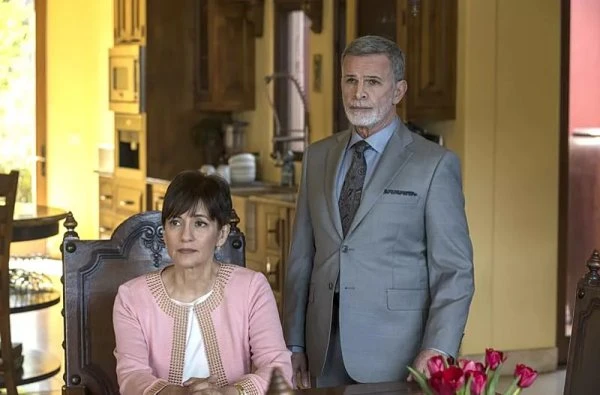
Looking over his shoulder are his mother, Dita (Ada Maris), desperate to maintain her status after losing her husband, and Devante Cano, the family's 'consejero,' equivalent to the Mafia 'consigliere,' played with exquisite subtlety by Tony Plana. In a plot twist worthy of a 'telenovela,' his wife, Emily (Sarah Bolger), just happens to have been EZ's girlfriend before his fall.

In addition to these internal issues, the Cartel must face the external challenge of Los Olvidados, literally "The Forgotten," a militant group of the poor, led by a woman known as Adelita, whose parents were murdered by the Galindos. At first Adelita (Carla Baratta), who resembles one of those Mexican paintings of the Blessed Virgin, seems to be a Joan of Arc figure, rallying the oppressed, but she is not as saintly as she appears.

Last, but definitely not least, because he is played by the great Edward James Olmos, Felipe Reyes, EZ and Angel's father, and apparently no more than a humble butcher, has secrets of his own. Olmos is at his best playing calm, polite men with a layer of steel beneath - and then a deeper level of hidden emotion below that. It is hardly a spoiler to suggest that this will prove to be the case here. One never loses the feeling when Olmos is on the screen that this courteous gentleman is suppressing something powerful and is capable of exploding at any second.
Yet it must be said that, although all the parts are well played, they are still parts to be played rather than actual people and the characters are less interesting than their situation. The chief selling point of 'Mayans MC' is that we return to the ghastly but fascinating world of the "one per centers" - so called because the claim that 99% of motorcycle clubs were law abiding prompted the obvious question about the other 1% - with a bit of spice in the form of a snapshot of broader Latino culture.
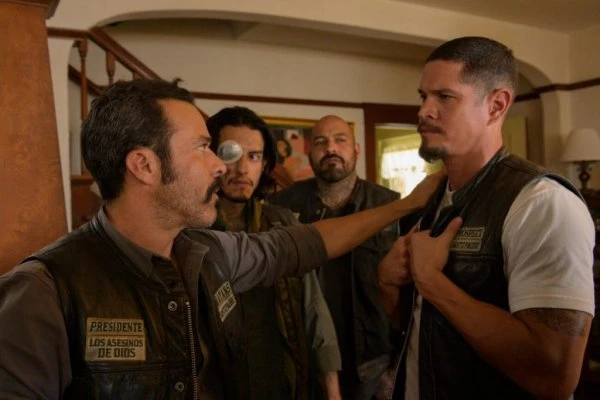
This is attractive because Latino culture has been rather neglected on American television. When America claims to be multicultural, what it means in practice is that there is the dominant culture - which is, socially if not necessarily racially, still basically the old WASP culture - and a number of subcultures that, to a greater or lesser degree extent, feel separated, excluded, and alienated from it. Among these, black culture has always interested Hollywood, as has the experience of Italian immigrants - for reasons many Italian Americans find tiresome - but others have rarely been the basis of ongoing mainstream shows that found favour with audiences.
This is surprising in the case of Latino culture because it is well established and cohesive, appeals to the senses very effectively (in its food, music, and art), and has long been of great social significance within the United States. Where other cultures came with immigrants, what used to be called Hispanic culture was dominant in what became the South Western States from Texas to California before they existed as States. These regions had been settled by people of Spanish-Mexican stock long before they were conquered by the United States in the 1840s. Most of these settlers remained, and they and their descendants give the South West a unique cultural flavour quite unlike any other part of the United States.

Americans of Latino descent naturally take great pride in this (we are told that this is now their own preferred term for themselves: apologies to any actual Latino people who are offended if this is not in fact the case, because it would not be the first time a "preferred term" was nothing of the sort, but rather an external imposition from above, as in the case of the top down designation of American Indians as "Native Americans"). This is important because it is often not understood that the political issue of the status of the Latino community within the United States is not just about immigration. They were there first.
Predictably, 'Mayans MC' seems to take sides on the political issue and, true to the current ethos prevailing in Hollywood, tries to paint itself as being on the side of the immigrants. The authorities trying to hold the Border are portrayed very unsympathetically and the theme song over the opening titles in the first season takes a bitter view of the America to which the immigrants nevertheless desire access.
Yet this either backfires very badly or it was intended all along to camouflage the fact that 'Mayans MC' often plays like a paid political broadcast on behalf of Donald Trump or an advertisement for a wall construction company. Practically every Latino we meet is either a thuggish biker or a terrorist or a drug smuggler.
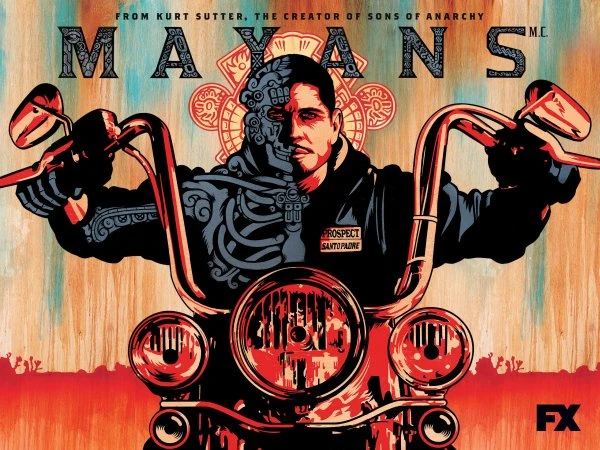
Of course, the commercial reality is that the whole point of a show like 'Mayans MC' is that it is about violence and crime and transgressive marginal characters. That is what attracts the viewers. It is no more intended to reflect the lives of all Latino Americans any than its stable mates at FX 'Justified' and 'Sons of Anarchy' reflect the lives of all WASP Americans, or 'Snowfall' reflects the lives of all black Americans.
All this is true in itself. The problem is that the lack of alternative, more representative portrayals of Latino Americans on mainstream television means that the image presented by 'Mayans MC' may become dominant in the public mind. The same cannot be said about WASP or black Americans. This danger is actually increased by the fact that it is a well written, well produced, well cast, and dramatically effective show. To a certain extent it pulls its punches in the first season, and, where Jax Teller in 'Sons of Anarchy' is a morally flawed hero from the start, EZ seems too good to be true, but things are destined to get a lot darker in later seasons.
Seen this show? How do you rate it?
Seen this show? How do you rate it?
Published on October 22nd, 2021. Written by John Winterson Richards for Television Heaven.


